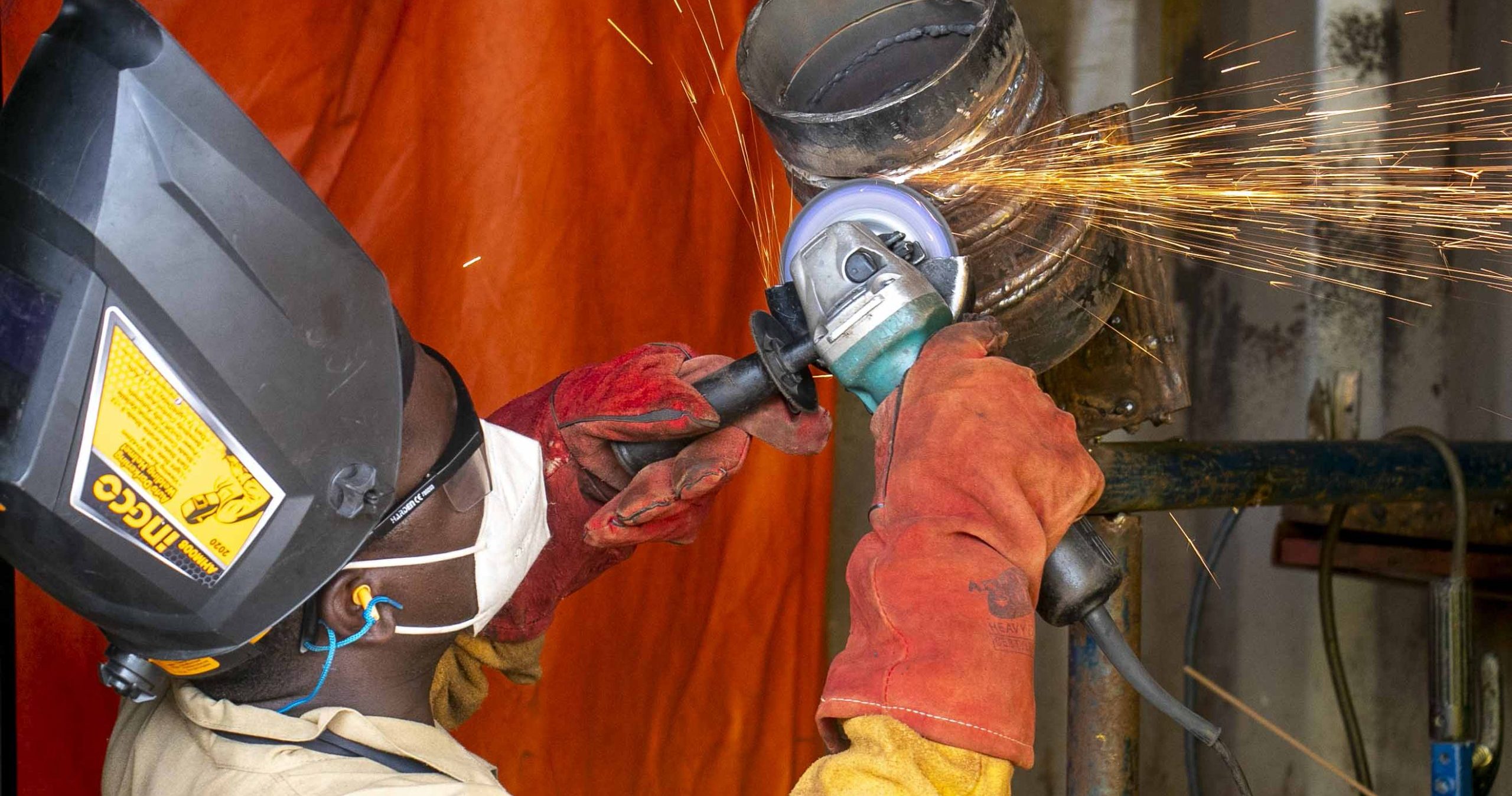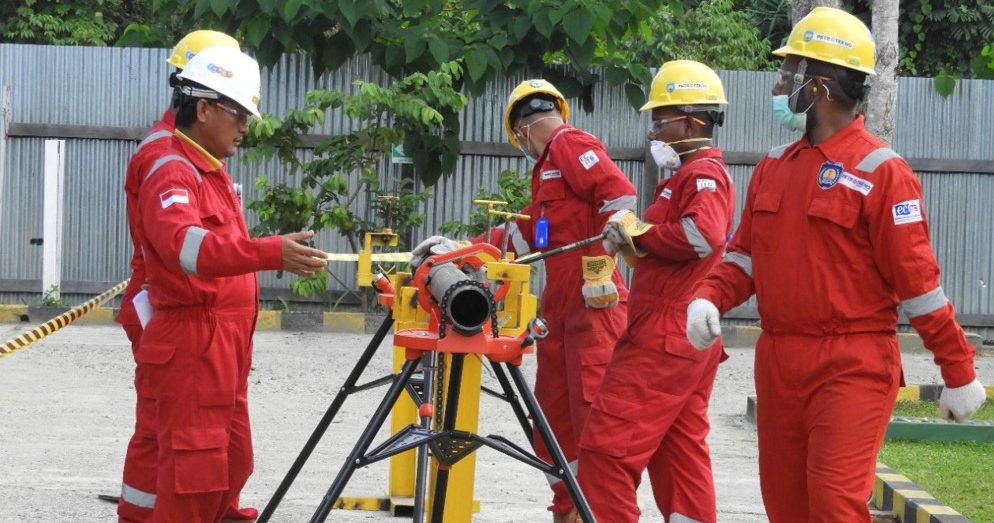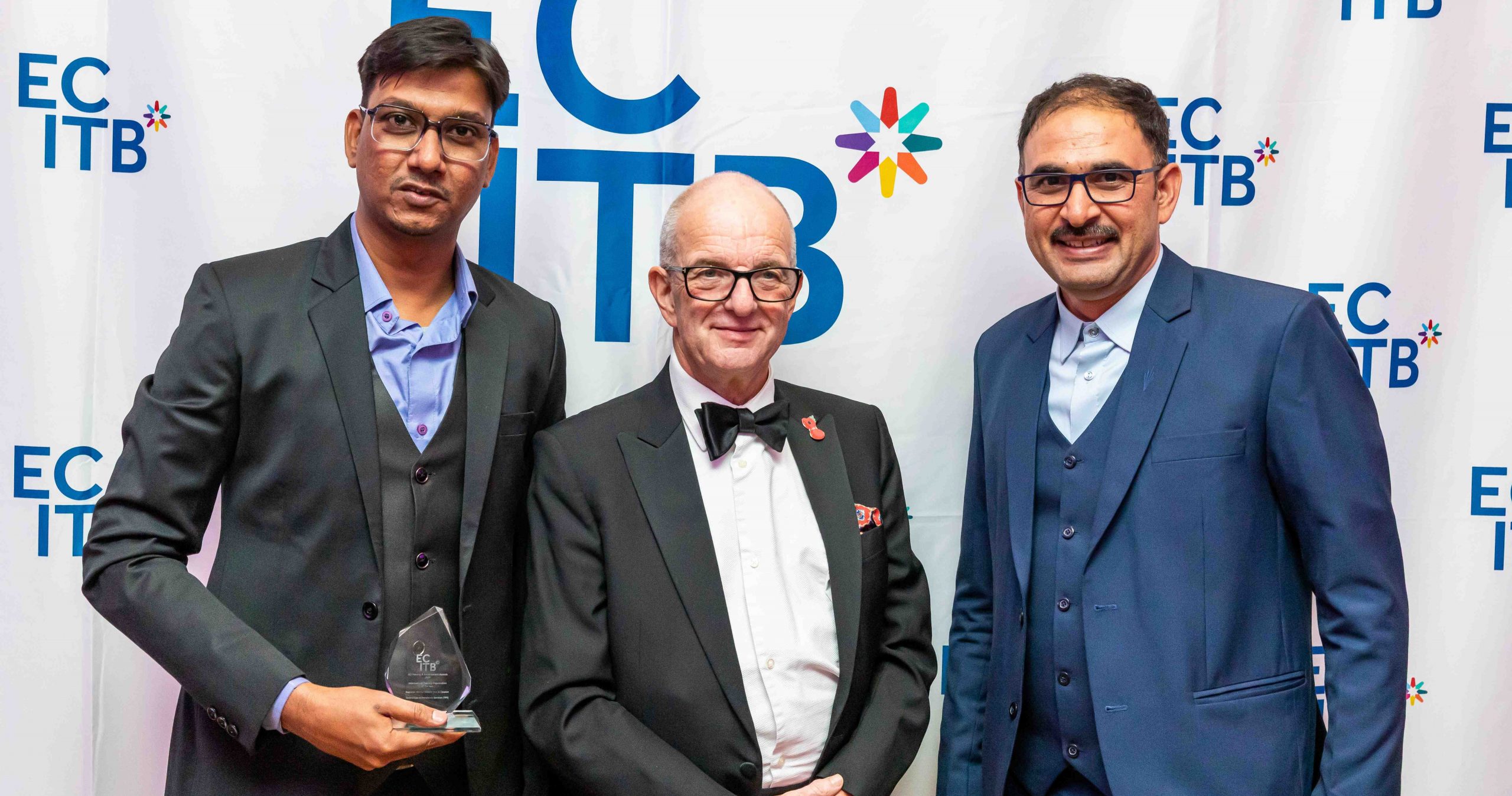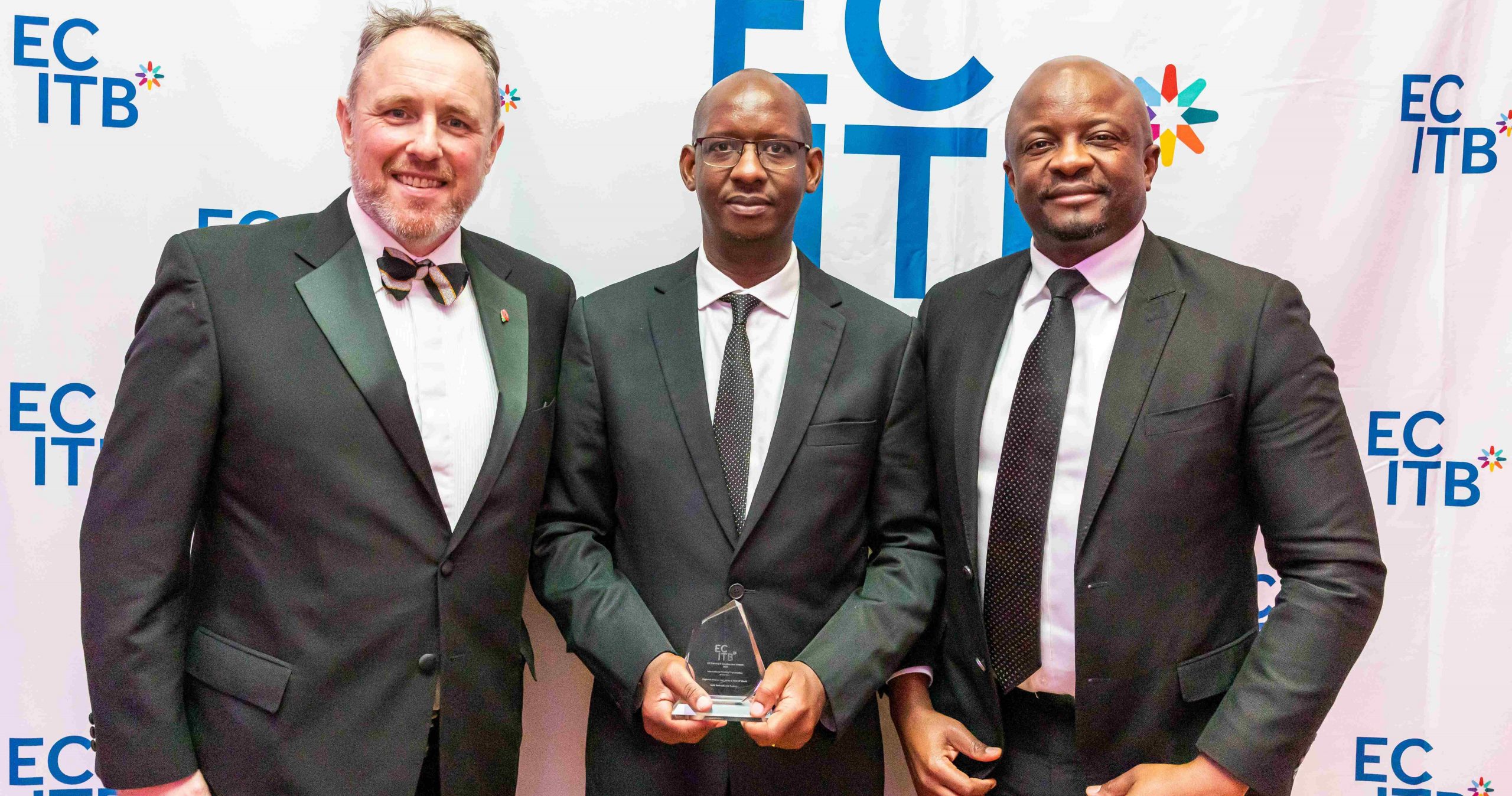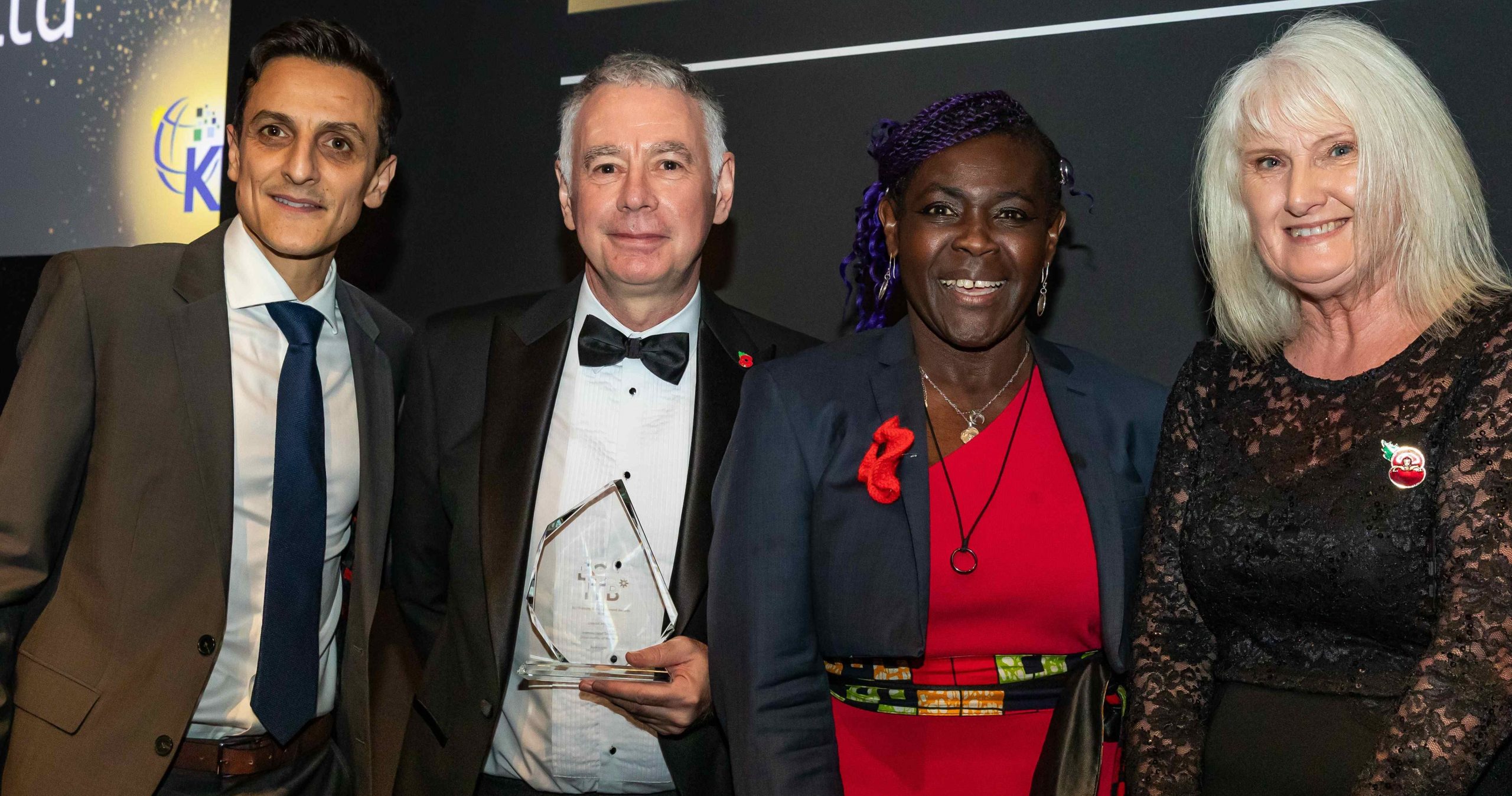Five years on from becoming the first ECITB-certified welder in Uganda, Tonny Oryem says gaining the internationally recognised qualification has been ‘really beneficial’ to his career.
The 34-year-old father-of-two completed the ECITB Global ICE Non-critical Welding Level 2 qualification via The Assessment and Skilling Centre (TASC) in 2020.
Having been trained by TASC at the beginning of his career and then later when gaining ECITB certification, Tonny’s career came full circle when he became a welding trainer with the international licensed training provider based in East Africa.
He initially enrolled in university after leaving school, but financial constraints resulted in Tonny making the decision to change to a vocational training pathway.
He worked as a welder and fabricator for a company that constructed warehouses before making the switch to TASC, which is based in Kampala.
Joining TASC as an assistant trainer, he moved on to become the company’s training coordinator. Alongside this, Tonny is a welding trainer and a technical assessor for ECITB Global’s International Competence: Engineering Construction (ICE) scheme – the same programme that he was the first to complete in the country.
Completing my ECITB Global qualification
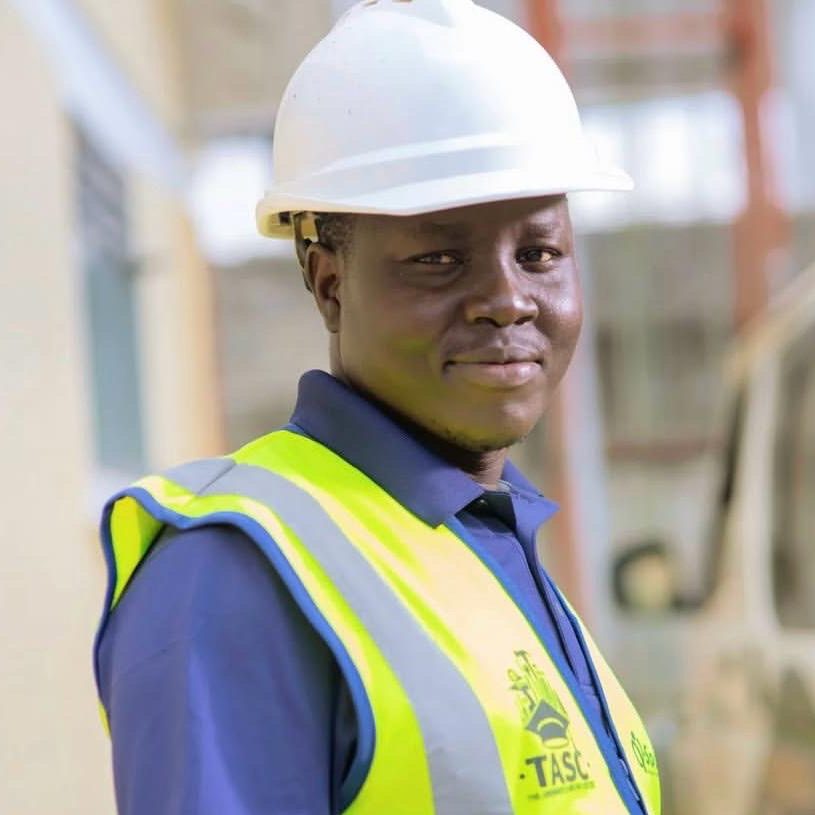
“The advantages of the ECITB qualification are that you are assessed in a minimum of two processes, of which I did welding and fabrication, and you gain a lot of skills and experience.
“There is also the required health and safety aspect, which helps you understand what the hazards are and how to mitigate them. So, first up, I was taken through the mandatory health and safety training to gain an International Health and Safety Passport (IHSP).
“After that I was introduced to the non-critical welding training, which taught me a lot of new things and exposed me to different welding processes like SMAW, GTW, GMAW and gas welding.
“ECITB is one of the best certifiers in the world. In the oil and gas sector in Uganda, ECITB is among the certificates recognised such as with pipefitting, welding, rigging and health and safety, so this training was really beneficial.”
Tonny Oryem
TASC
Give welding a go!
Tonny is a multi-skilled coded welder and non-destructive testing inspector for mild steel, carbon steel and stainless steel materials and other metal components.
He has expertise in numerous welding techniques and extensive knowledge on welding tools and machines and their designs, uses and maintenance.
As part of his work at TASC, Tonny trains people from the oil and gas, manufacturing and mining sectors with varying levels of experience in welding.
TASC provides internationally recognised trade certifications for Ugandan workers. It holds ECITB Global training licences in safety courses linked to the IHSP, plus for technical tests in electrical installation and maintenance, mechanical fitting, pipefitting, rigging, scaffolding and the non-critical welding discipline completed by Tonny.
Having now spent a decade of his life in welding, Tonny says the enjoyment he gets means welding is “a part of who I am now”.
“I would encourage anyone out there who wants to do welding as a career to give it a go,” he added.
“People here have a misconception about welding. They think when you are a welder you lose your sight or your face will burn off. That is not the case.
“The most important thing is to be fully protected. That’s why with ECITB, safety is the first step before you go for the technical training.”
Internationally recognised qualifications
The ECITB’s ICE scheme is a global engineering construction industry (ECI) card that helps workers demonstrate their ability to carry out work to the required level of competence.
An ICE Card is issued after an individual demonstrates they have the knowledge, skills and proficiency to perform their role through a quality-assured assessment process.
The international ICE Level 2, which Tonny completed, is delivered in a training centre such as TASC over 6-12 months.

“ICE vocational programmes and qualifications are a good way to gain the skills and knowledge needed for careers in the engineering construction industry.
“They offer practical learning programmes in vocational subjects developed with employers to international industry standards.
“Importantly, they are internationally recognised, valued by multinational employers and accredited by the ECITB.
“Candidates prove their competence by demonstrating the skills, knowledge and behaviours required for a particular role.”
Tristan Kemp
ECITB Head of Commercial

